The 1st ML4NGP meeting took place one month ago in Bratislava, at the beautiful Clarion Congress Hotel. The meeting was locally organized by the Institute of Neuroimmunology of the Slovak Academy of Sciences and brought together leading experts, researchers, and industry professionals from all COST Member countries to discuss the latest advancements and applications of machine learning and experimental techniques in the study of non-globular proteins (NGPs).
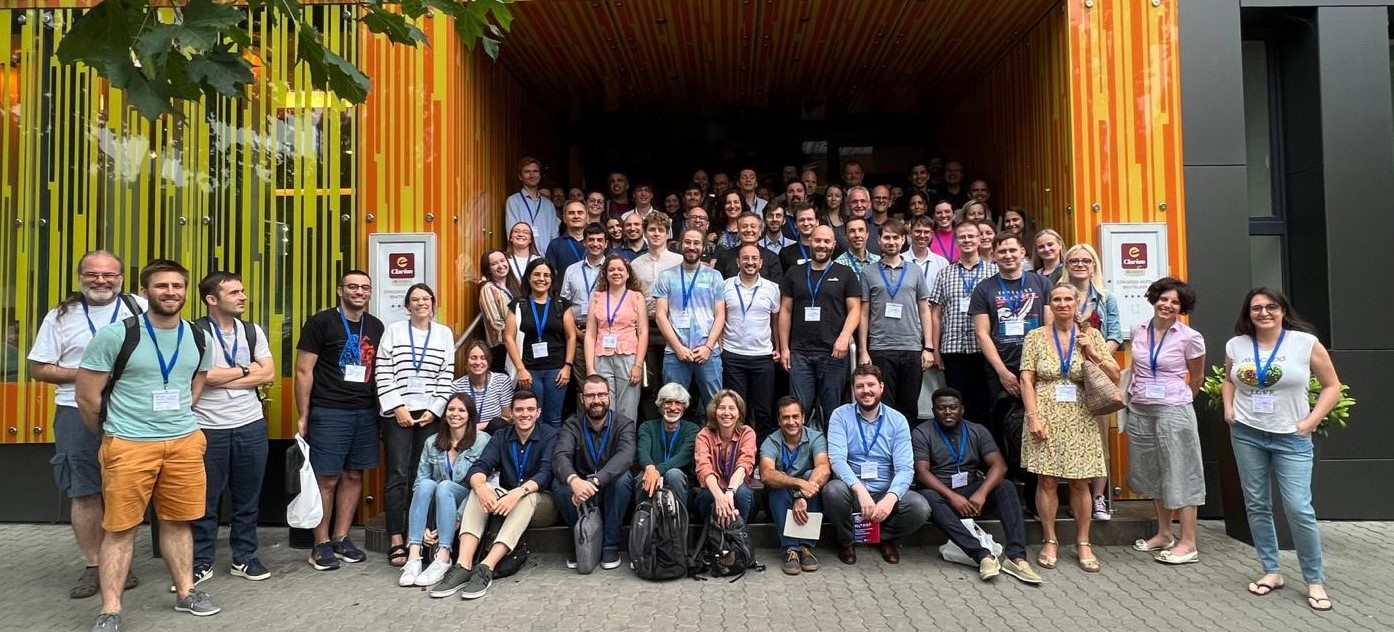
Group photo with participants at the 1st ML4NGP meeting on Machine Learning and Non-Globular Proteins, in front of the Clarion Congress Hotel in Bratislava, Slovakia.
With a participation of 108 researchers, the inaugural ML4NGP meeting provided an optimal environment for experts at the intersection of machine learning and non-globular proteins (NGPs) to engage in fruitful idea exchange, foster collaborations, and explore innovative approaches. The meeting sought to address the distinctive challenges posed by studying structural properties of these proteins.
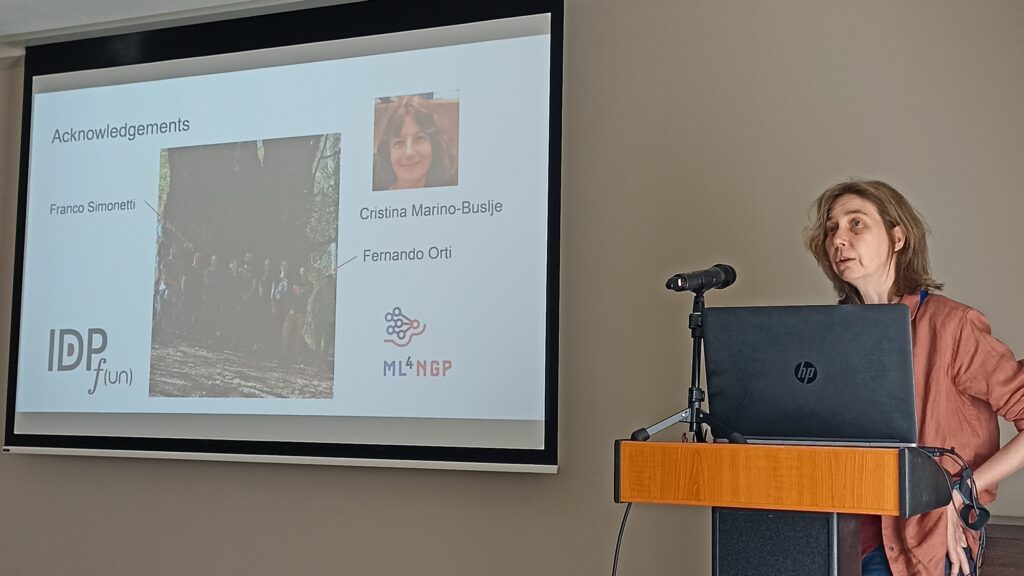
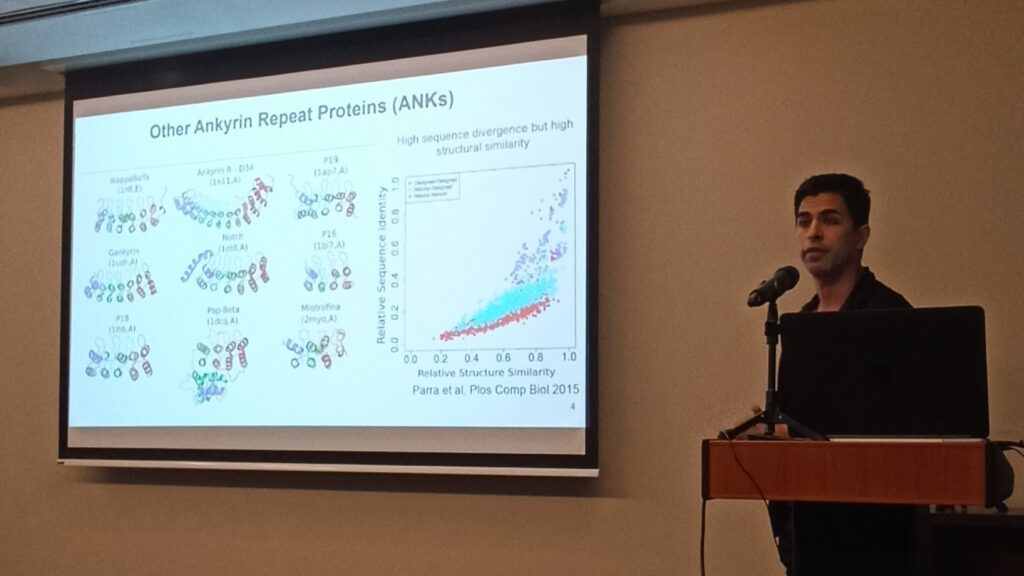
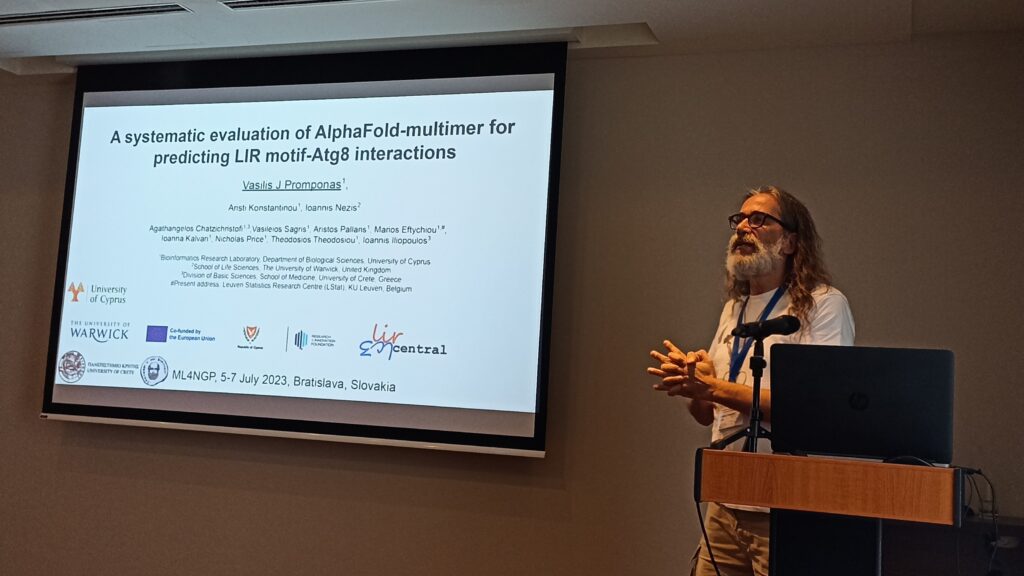
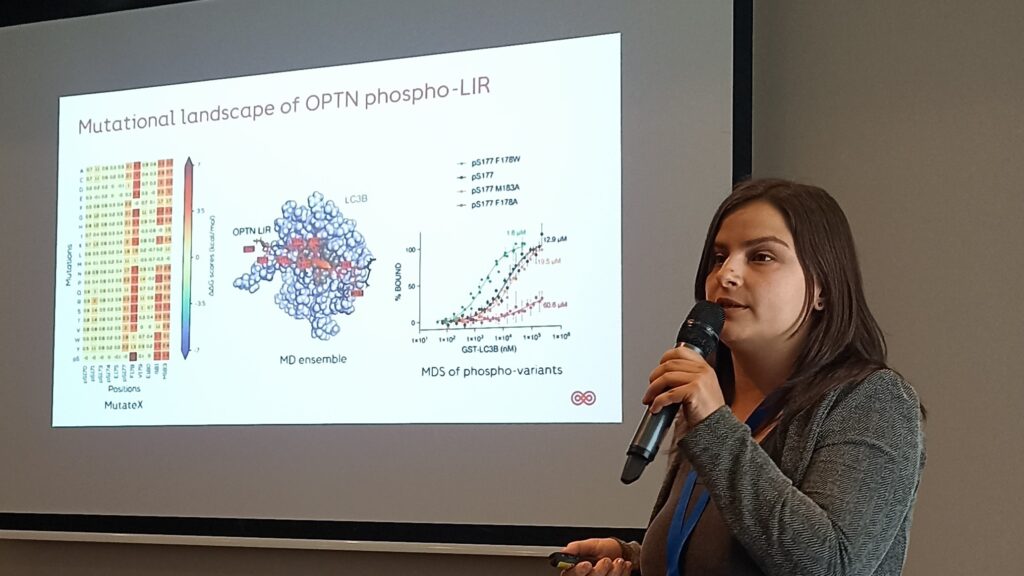
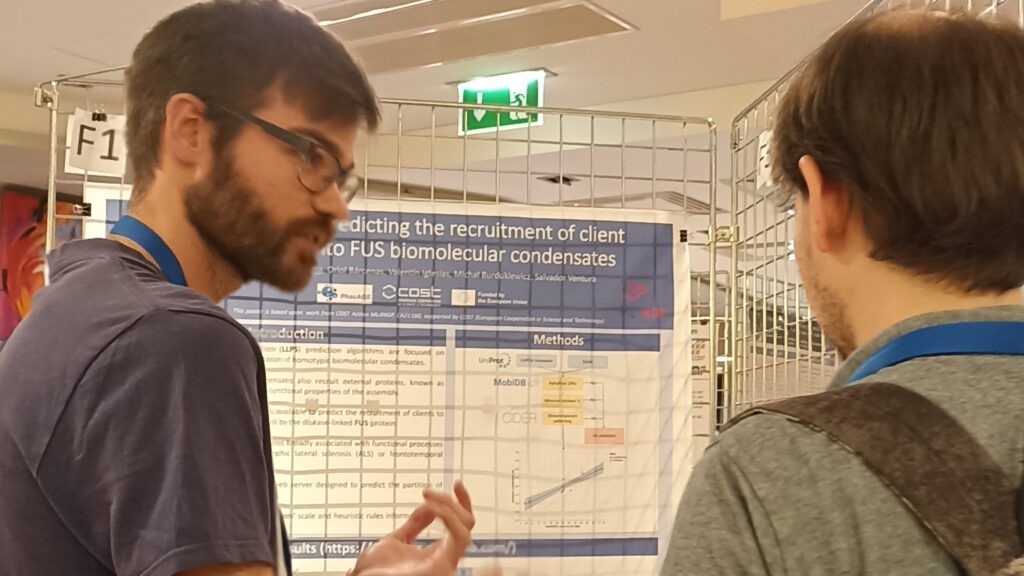
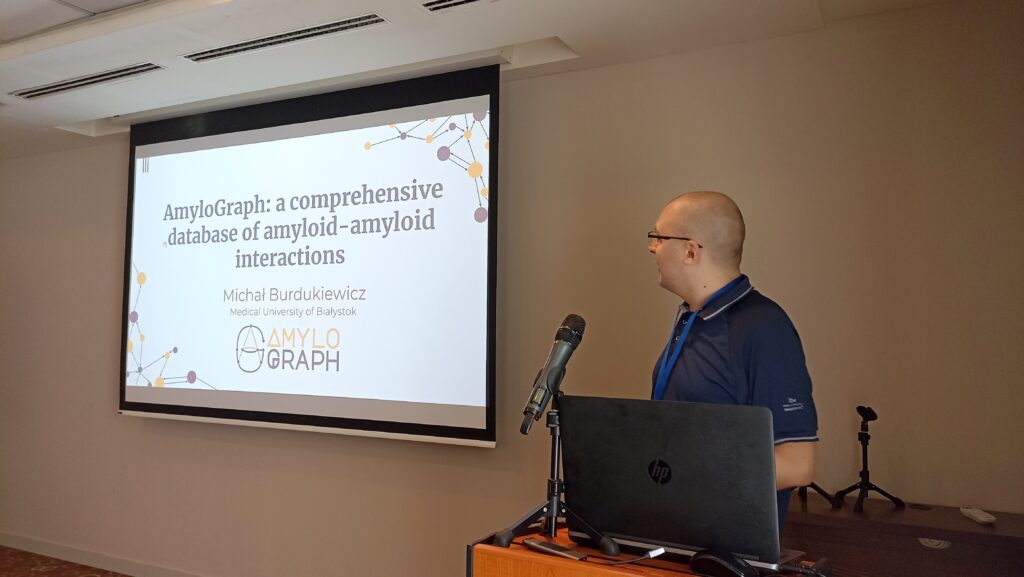
Photos from participants during 1st ML4NGP meeting on Machine Learning and Non-Globular Proteins held in Bratislava, Slovakia.
The conference program comprised a diverse range of activities, including five invited talks by renowned experts in the field, all of whom are currently members of our esteemed Scientific Advisory Board. These talks covered a broad spectrum of topics, including deep learning approaches for protein folding prediction, structural characterization, function and aggregation of NGPs, development of machine learning-based tools for characterizing NGPs, and advancements in protein structure determination using computational methods.

Photos of the invited speakers from the Scientific Advisory Board from left to right: Peter Tompa, Sonia Longhi, Andrey Kajava, Miguel Andrade and Salvador Ventura.
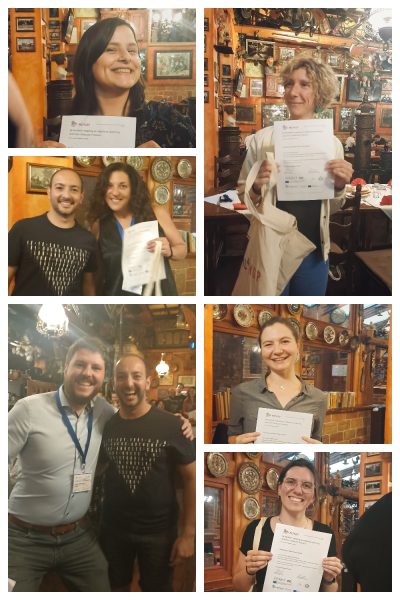
In addition to the invited talks, ML4NGP featured 20 short talks, enabling researchers to present their research and share valuable insights with all the participants. The presentations covered various aspects of machine learning applications in studying non-globular proteins, including protein-protein interactions, protein engineering, and protein function prediction.
One of the conference’s highlights was the poster session, which showcased 37 posters representing cutting-edge research in the field in a very relaxed and informal atmosphere. Out of these, 11 were selected for flash talks, allowing the presenters to open the stage for dynamic discussions with fellow participants.
In total, six presenters were awarded for their outstanding contributions, with two receiving recognition for the best poster presentation, two for the best short talk, and two for the best flash talk. Congratulations to our exceptional researchers!
Photos of the awardees for best poster presentation, best flash talk and best short talk.
The program of the 1st ML4NGP meeting also included the first in-person working group meetings, which brought together researchers involved in the ML4NGP research initiative. The working groups, aimed at advancing the field of machine learning for non-globular proteins, focus on areas such as experimental data generation and curation, protein structure prediction, identification of machine learning approaches to apply in protein structure prediction, and protein design. The meeting provided an ideal setting for participants to collaborate, share progress, and set future goals for their respective working groups.
The conference chair, expressed his satisfaction with the event’s success. “ML4NGP serves as a remarkable and inclusive platform, bringing together interdisciplinary researchers from diverse career stages to collectively explore the vast potential of machine learning in comprehending non-globular proteins” he said.
Also, some participants highlighted that the conference program was a “Good balance between experimental/computational talks and the scientific networking” and that “the presentations were very interesting and very helpful” for their future research.
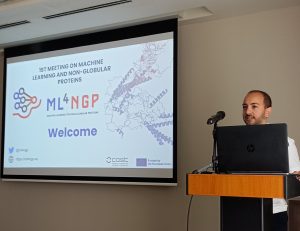
As the conference concluded, participants left Bratislava with a renewed sense of enthusiasm and an expanded network of like-minded individuals committed to leveraging the potential of machine learning-based computational tools for the study of non-globular proteins. The success of ML4NGP highlights the growing importance of artificial intelligence and its applications in advancing our understanding of these unique protein structures.
The organizers of ML4NGP are already planning the next edition of the conference, aiming to build upon the success of this year’s event and further accelerate the progress of developing machine learning based tools in the field of non-globular proteins.
For more information about the next events, please visit the ML4NGP website at www.ml4ngp.eu.
This event is part of the activities of the COST Action ML4NGP, CA21160, supported by COST (European Cooperation in Science and Technology) and it was co-organized together with EU-funded projects IDPFun (“Driving the functional characterization of intrinsically disordered proteins”) and REFRACT (“Repeat protein Function, Refinement, Annotation and Classification of Topologies”).
